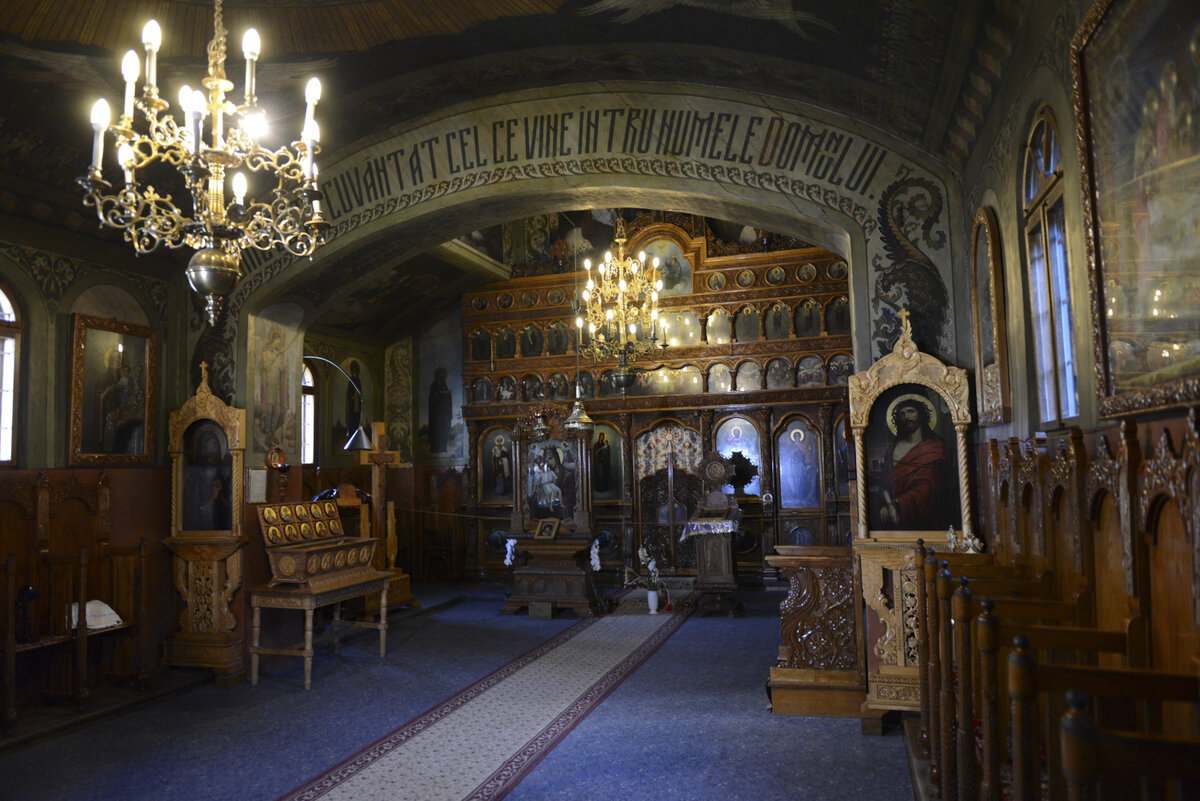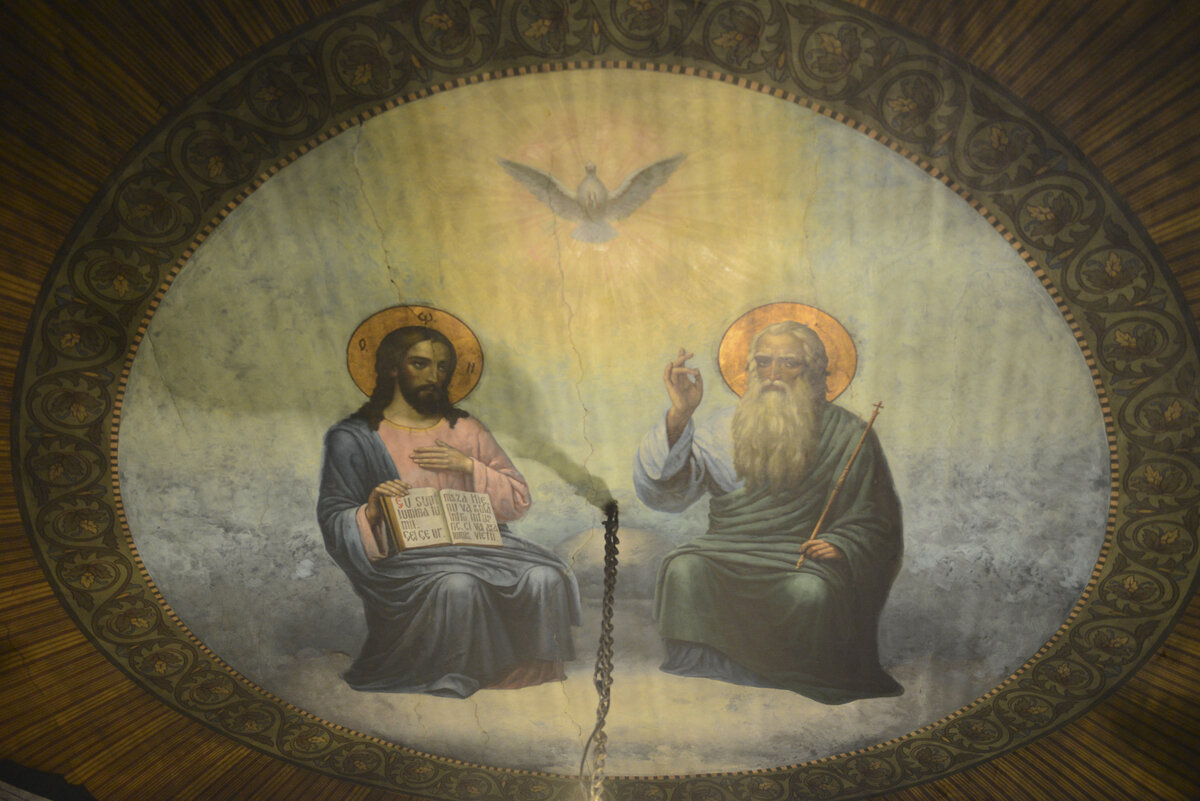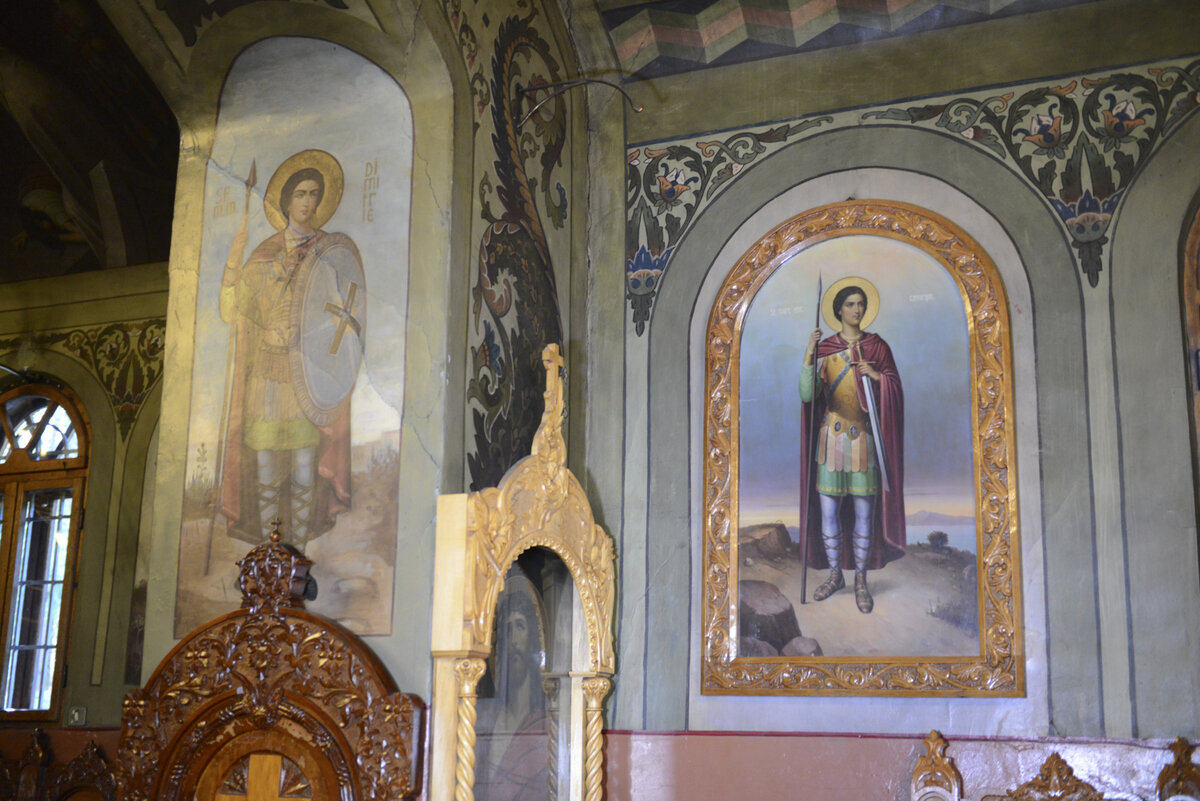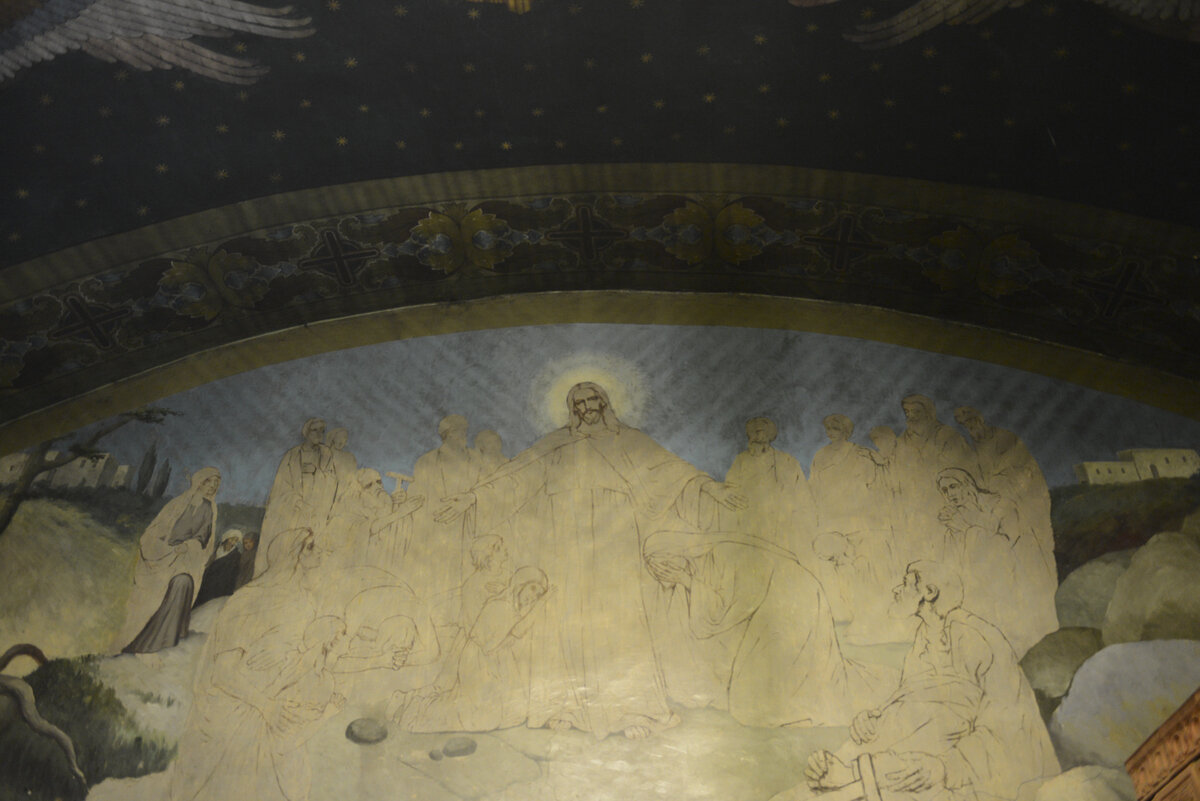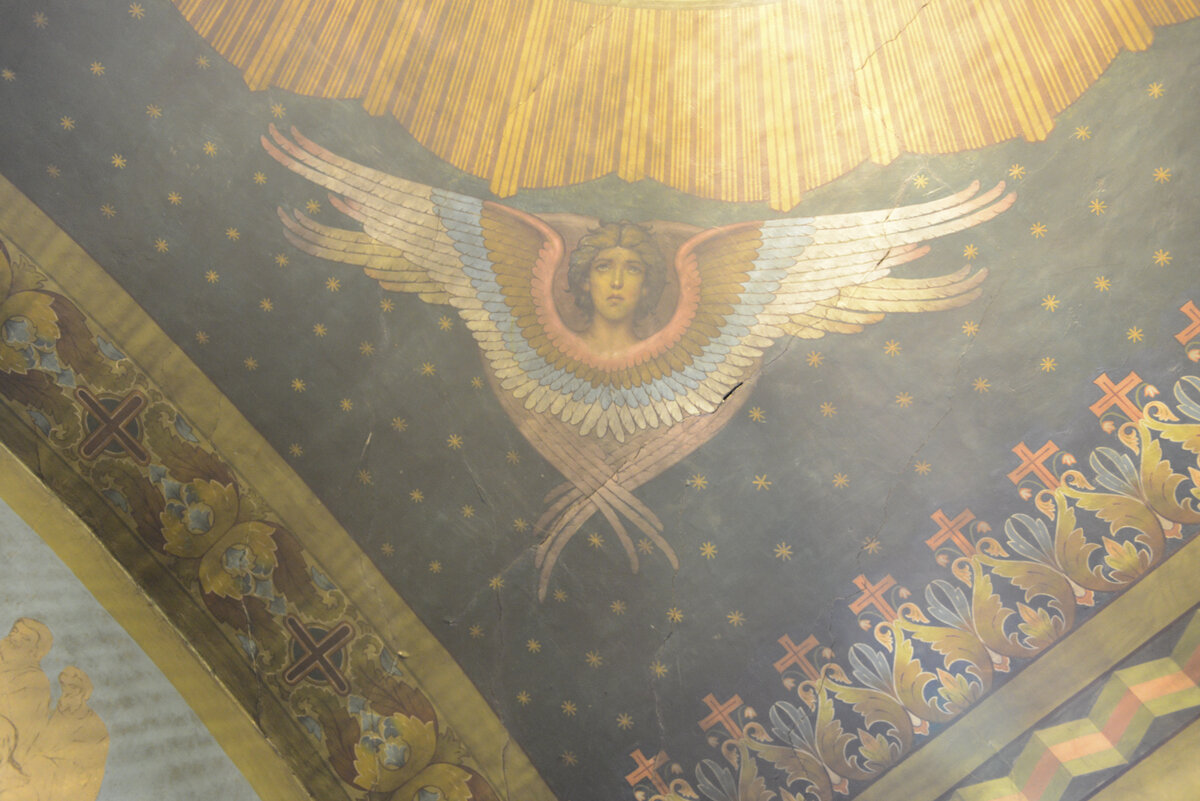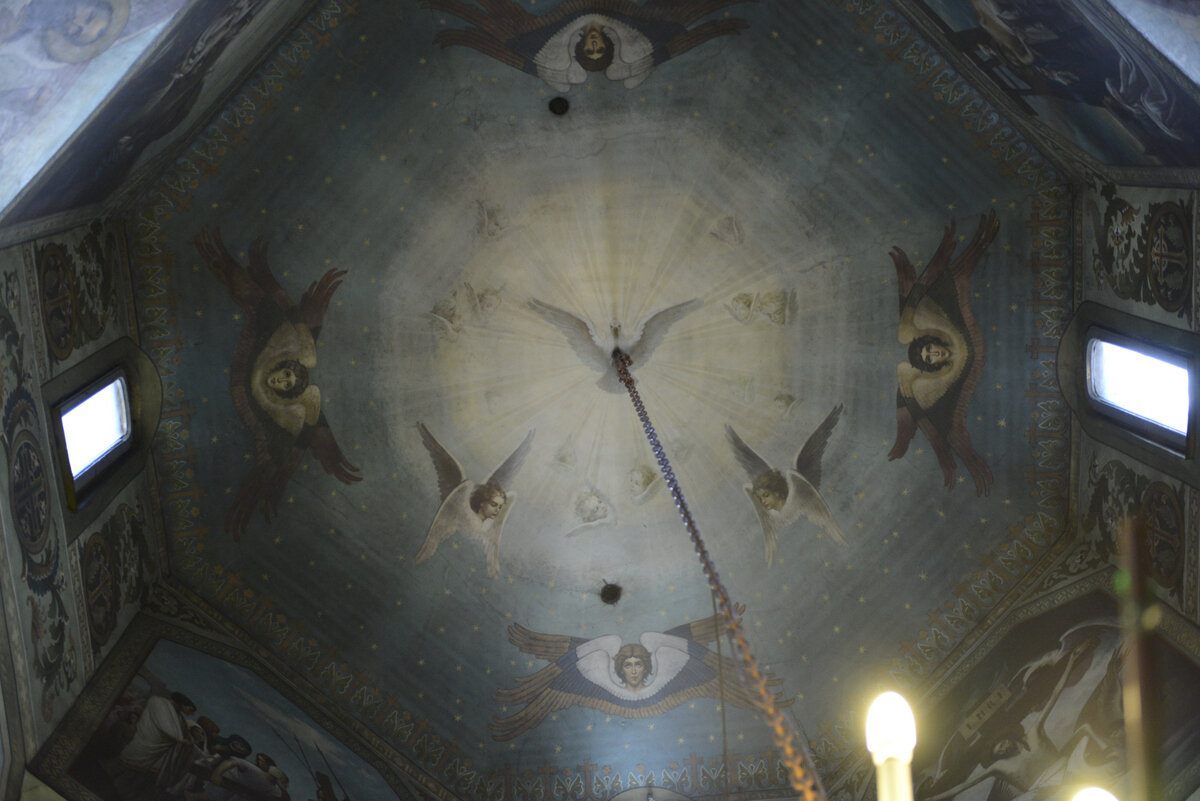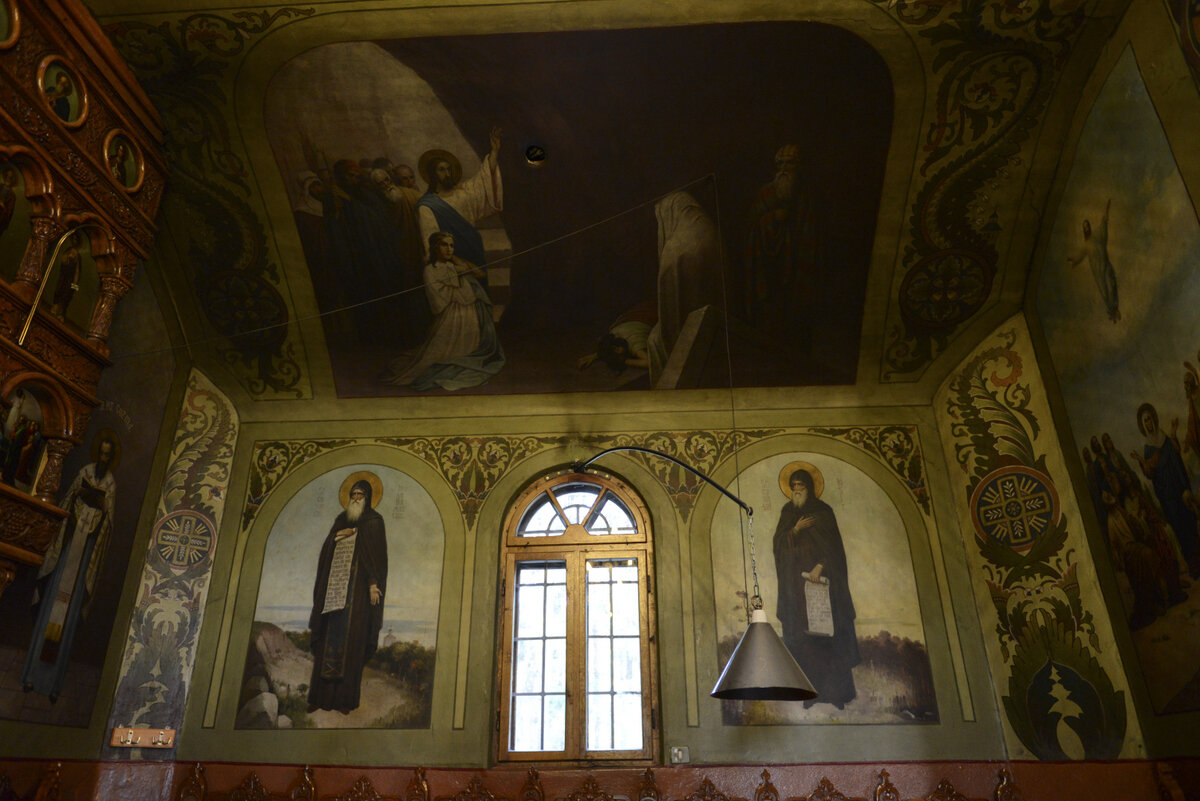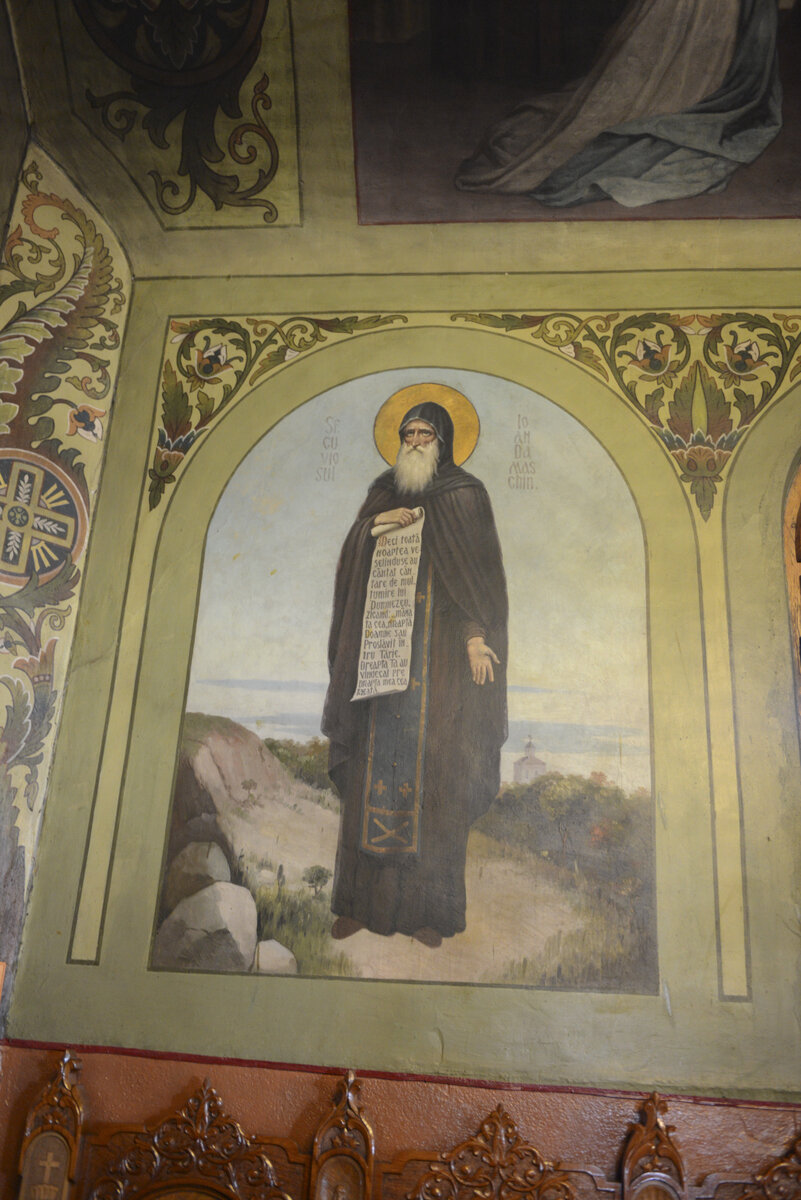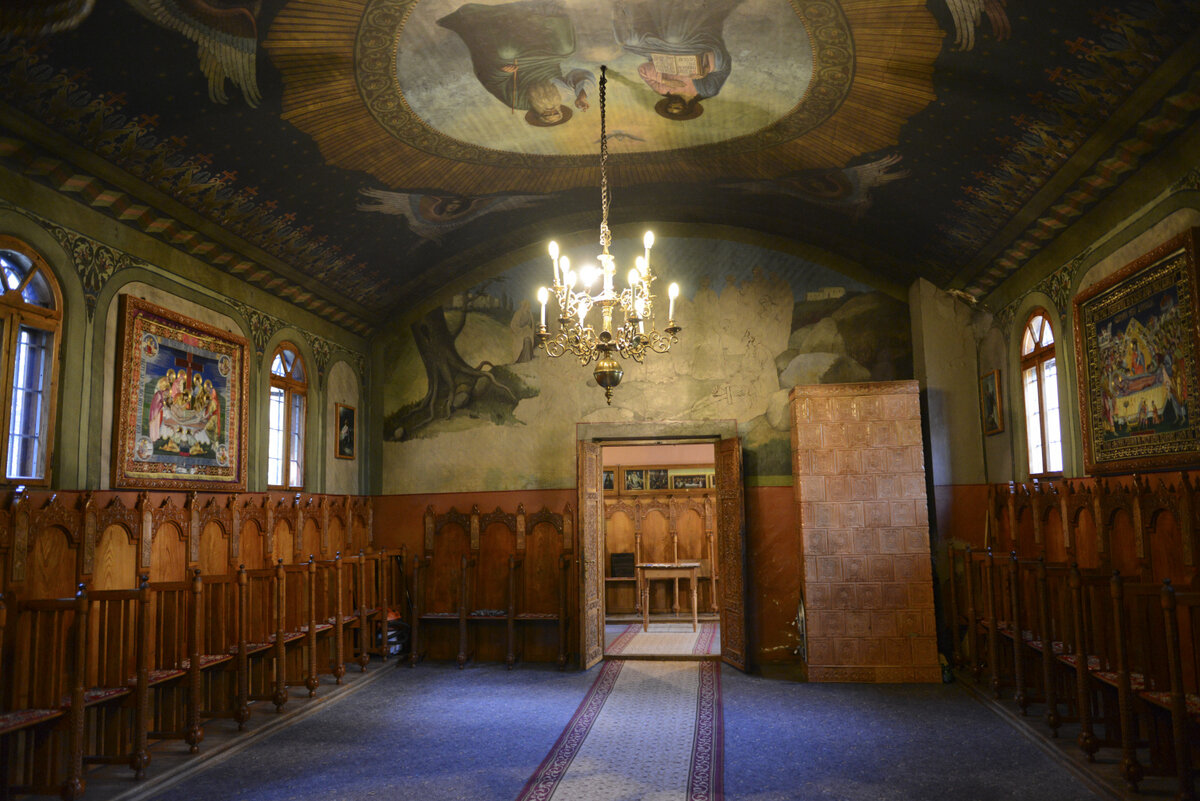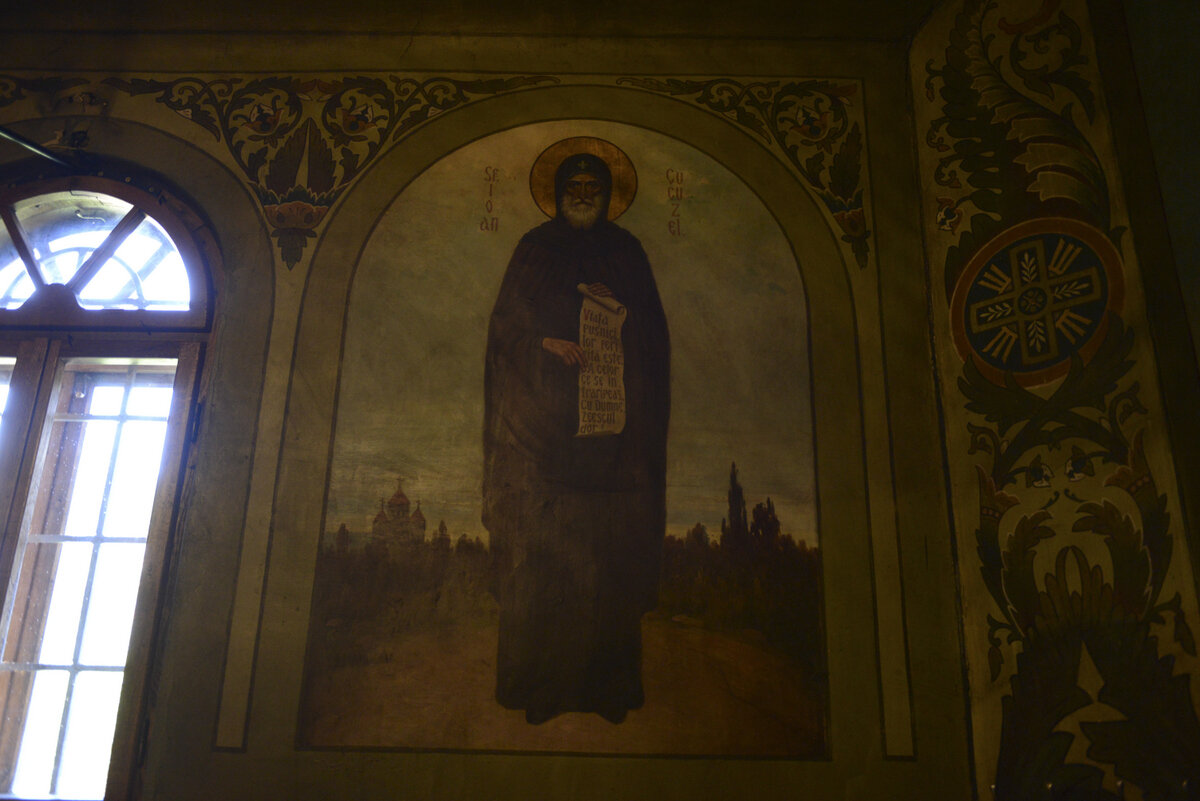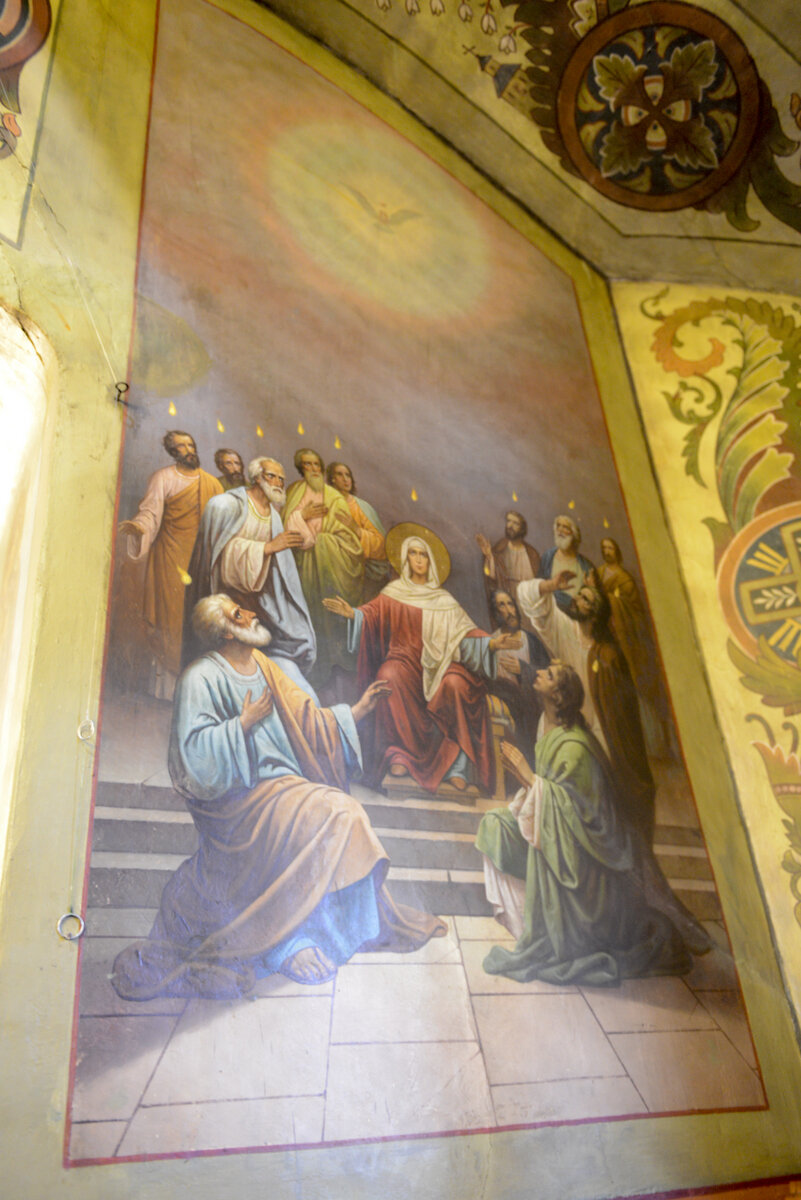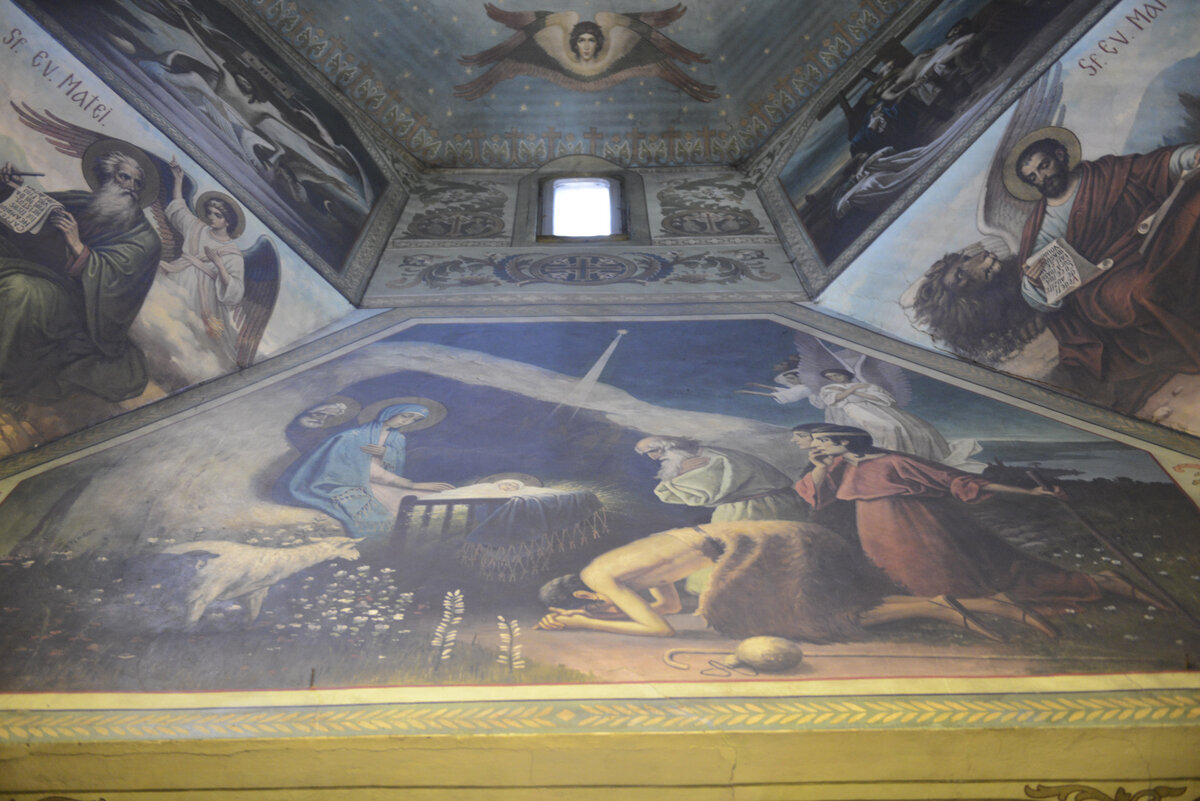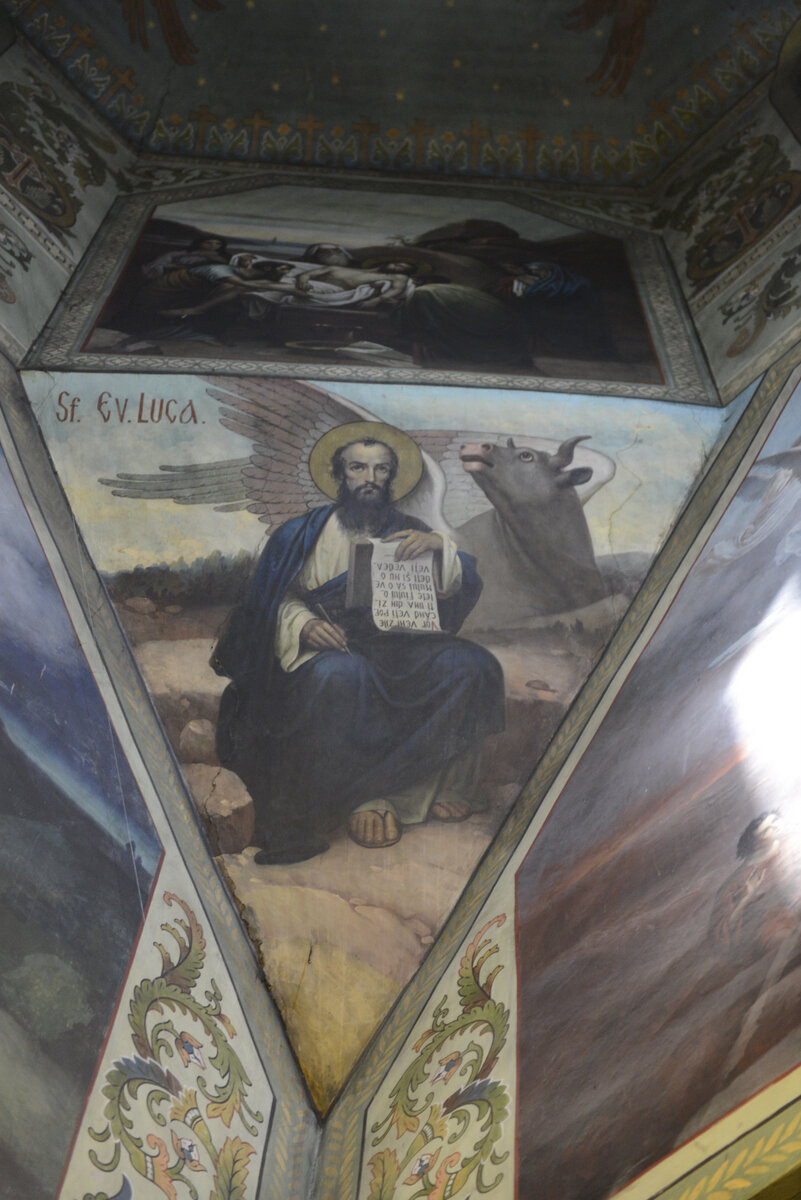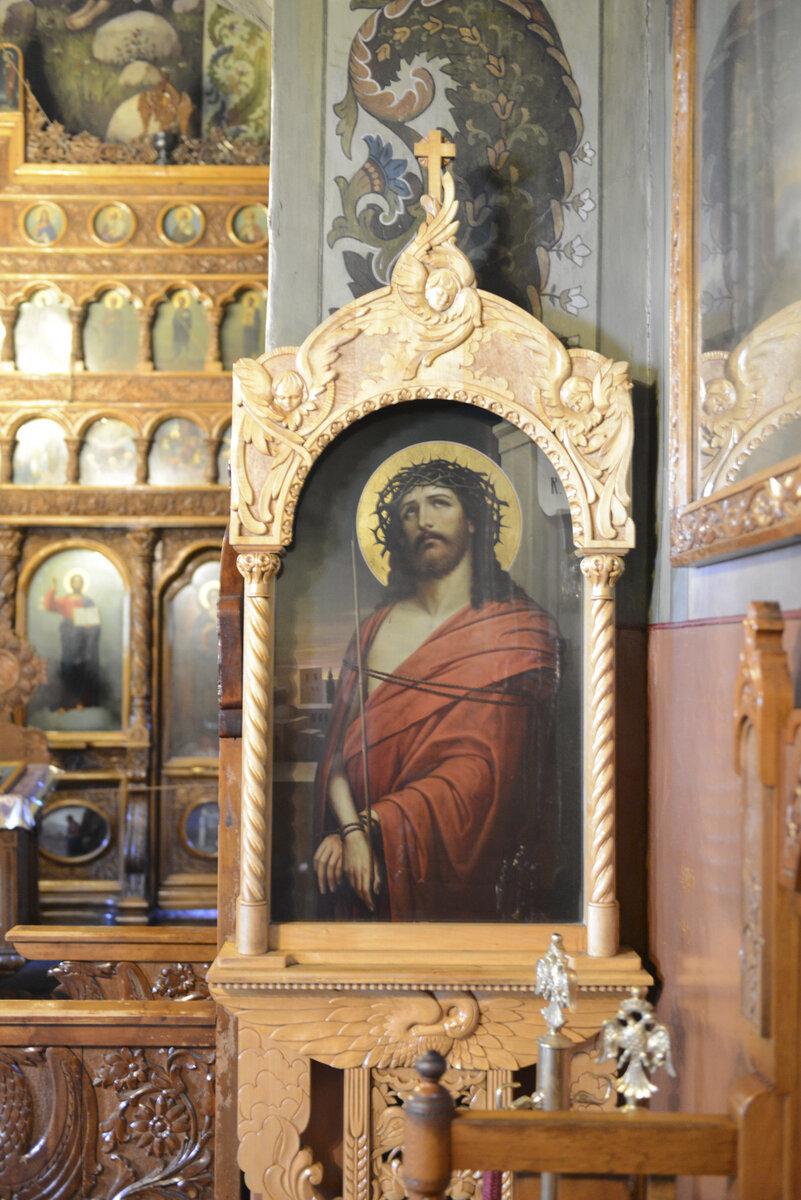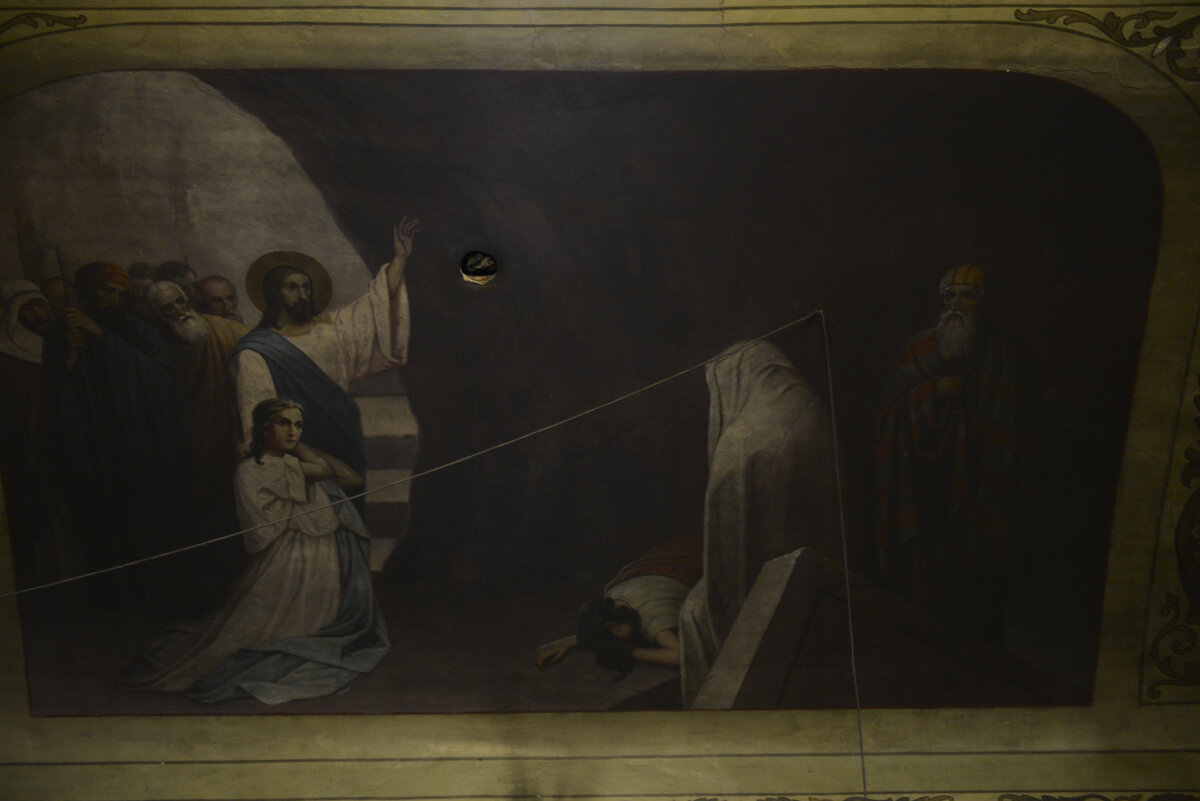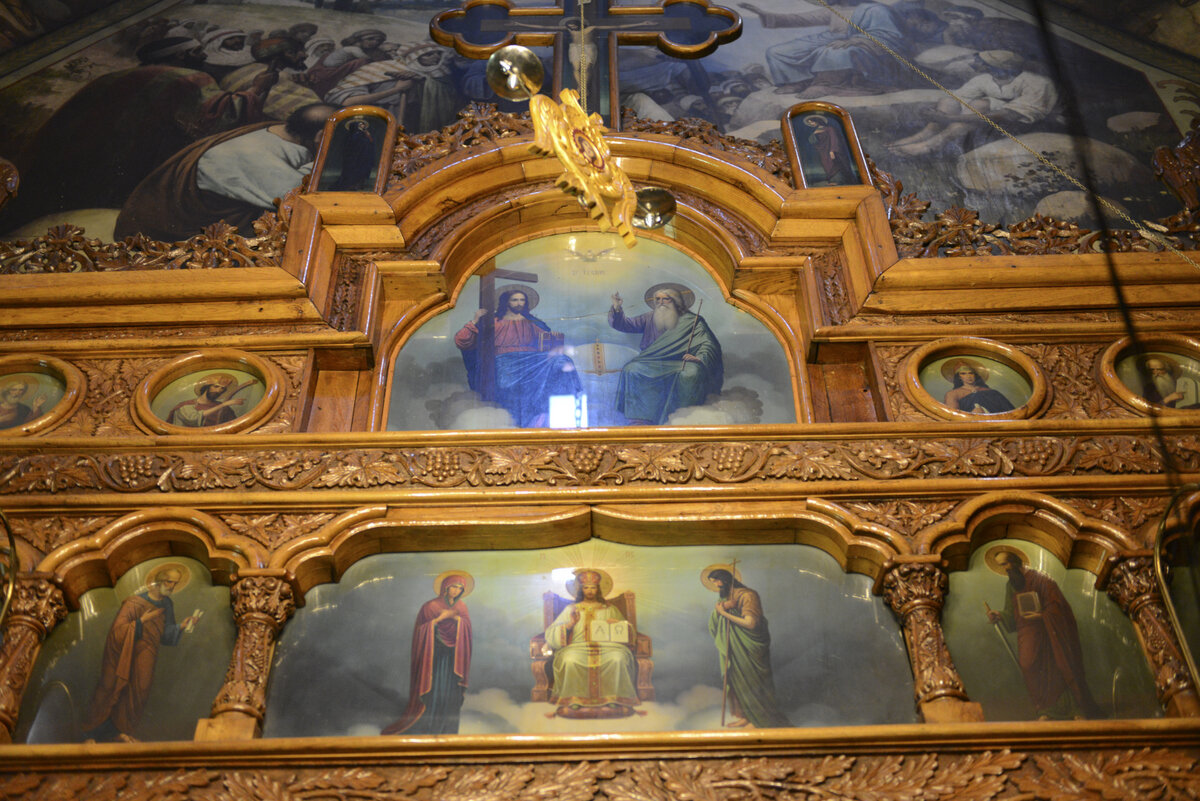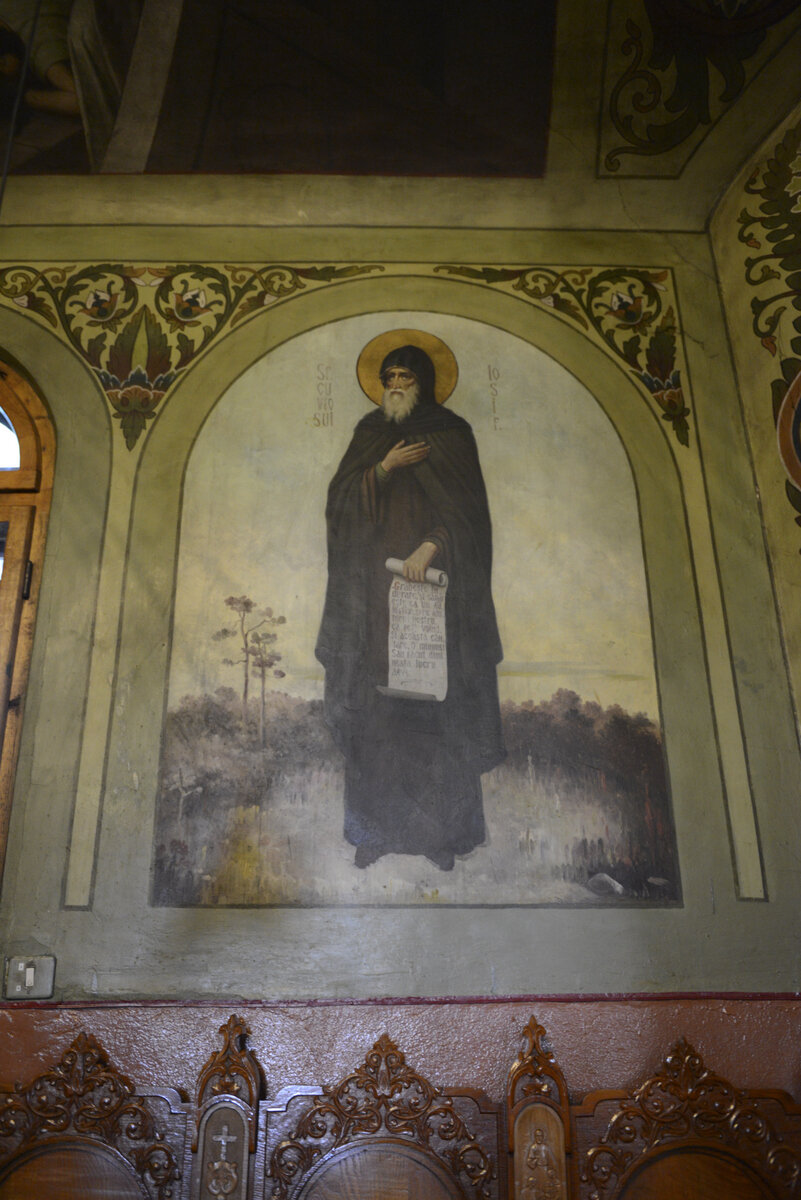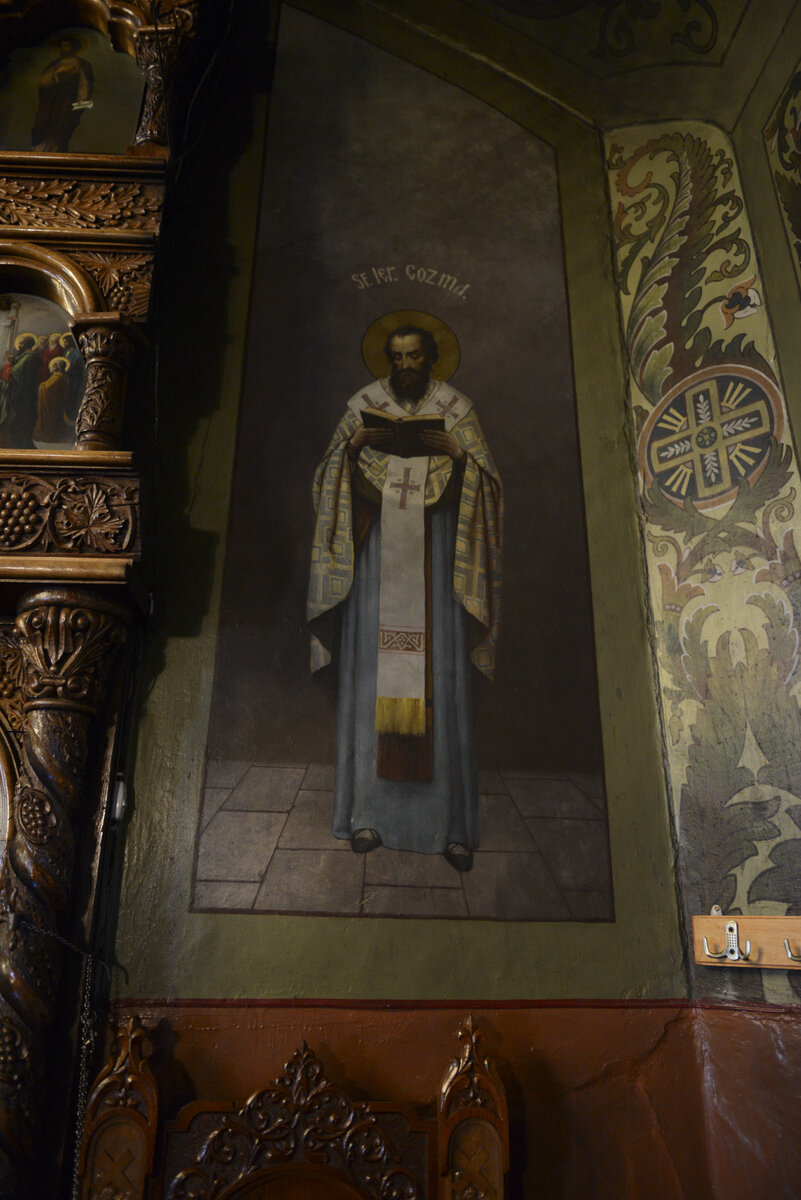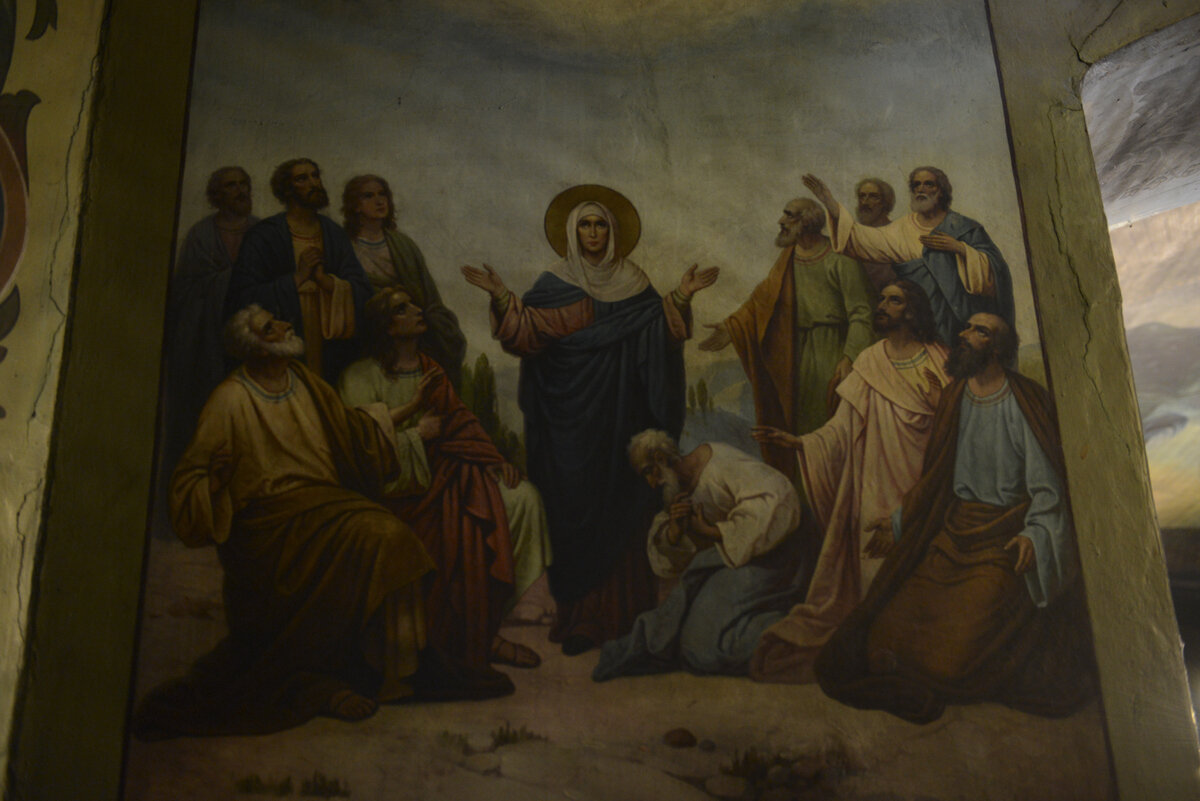Preaiubitului Cler, Credinciosilor si Monahilor
24 Martie 2020
Ajunul Bunei Vestiri
„Astazi sunt bunele vestiri de bucurie: praznuire fecioreasca. Cele de jos cu cele de sus se împreuna. Adam se înnoiește, Eva se izbaveste de întristarea cea dintai; iar cortul firii noastre, prin îndumnezeirea lui de catre Cel ce a luat asupra-si aluatul nostru, Biserica a lui Dumnezeu se face”. --- „Slava” Stihoavnei Praznicului
Preaiubiti frati si surori întru Domnul nostru Iisus Hristos Cel întrupat,
„Cele de jos cu cele de sus se împreuna” – asertiunea ne înstiinteaza de faptul ca, desi „din tarana suntem facuti si în tarana ne vom întoarce”, potrivit planului lui Dumnezeu, în acelasi timp suntem facuti si pentru Împaraaia Sa, cea vesnica si cereasca, în care vom fi primiti. Aceasta speranta sa o perpetuam astăzi, în fata coronavirusului, precum si în toti anii vietii noastre!
„Cortul firii noastre […] Biserica a lui Dumnezeu se face” – adica, alcatuirea trupului nostru uman a fost ridicată la cele ceresti, deoarece Hristos si-a însusit-o. El a ridicat-o la rangul de templu, un trup pentru El Însusi, un semn al fagaduintei Sale catre noi. Hristos Iisus, a doua persoana a Sfintei Treimi, prin conlucrarea Sfintei Fecioare Maria, a devenit vizibil, tangibil; S-a nascut în Betleem, a propovaduit printre oameni, a fost rastignit pe cruce; a murit, a fost înmormântat, a înviat si S-a înaltat cu trupul Sau omenesc preaslavit.
Astazi, în întreaga lume, oamenii cauta „vestile bune”. Cautam un sfarsit, capatul dezastrului creat de coronavirus, pentru care nu eram pregatiti si care a produs o suferinta fara proportii, iar unora, chiar moartea. În ecteniile noastre cele sfinte, ne rugam pentru un „sfarsit crestinesc vietii noastre, fara durere, neînfruntat, în pace”. Acest pasaj face referință la starea „templului” nostru, a „alcatuirii” noastre, a corpului nostru. În continuare, fragmentul mentioneaza: „si raspuns bun la Înfricosatoarea Judecata a lui Hristos”, facand referinta la faptele noastre, la deciziile noastre, la viaaa noastră în Hristos. Suntem pregatiti cu adevarat pentru incertitudinea acestei zile si pentru judecata care va veni?
Ori de cate ori teama isi face simtita prezenaa în istoria umana, cautam „vestile bune”, care sa anunte un sfarsit rapid a ceea ce nu putem controla, iar în acest caz, un sfarsit al efectelor devastatoare ale coronavirusului. Ceea ce putem controla însa, sunt deciziile pe care le luam. Fundamentandu-ne întreaga existenta, asadar, pe adevarata si singura Veste Buna, aceea ca Dumnezeu S-a coborat asupra noastra, luand asupra Sa existenta noastra fragila, pe care ridicat-o la o viata noua, fara de sfarsit, împreuna cu El, suntem îndemnati sa traim în Hristos ca madular al trupului Sau, Biserica.
Astazi, praznuim Vestea cea Buna, aceea ca Dumnezeu S-a facut om, pentru ca omul sa poata deveni ca Dumnezeu (Sfantul Atanasie cel Mare). Aceasta este vestea cea buna, cea care ar trebui sa ne întareasca în aceasta perioada de îngrijorare si de teama. De asemenea, este o perioada în care, atat cat este permis de autoritatile civile si medicale, avem ocazia de a sluji unii altora. Acesta este motivul pentru care am luat decizia de a închide bisericile, chiar daca acest lucru înseamna ca nu exista slujbe care sa se adune ca Trup al lui Hristos. Este un demers prin care ne-am exprimat îngrijorarea unii fata de ceilalti, pentru ca nu stim cine poate purta virusul, fara rea vointa si în necunostita de cauza, chiar si în cadrul slujbelor noastre, în edificiile noastre, în bisericile noastre sfinte, încantatoare si frumos împodobite.
Trupul lui Hristos, Biserica, nu este un edificiu facut de mainile omului; reprezinta unitatea pe care o împartasim cu Hristos, „Cel ce a luat asupra-si aluatul nostru”. Nimic si nimeni nu ne poate împiedica sa ne rugam, nu ne poate opri de la comuniunea personala cu Dumnezeu, în timp ce ne manifestam multumirile personale, în cadrul sfinteniei caminului nostru, în fata sfintelor noastre icoane, pe care le veneram, pentru Vestea cea Buna si Mareata a zamislirii Sale în pantecele Maicii si Fecioarei Maria, cel mai înalt exemplu al ascultarii, dar si „izbavirea Evei”.
Prin urmare, sa praznuim în casele noastre, asa cum au facut primii creștini. Opriți televizorul si, odata cu el, „stirile false”, si sarbatoriti Vestea cea Adevarata! Reuniti-va în cadrul familiei pentru a citi pericopa evanghelica după Sfantul Apostol si Evanghelist Luca si ascultati cuvintele Sfintei Fecioare (Lc 1,24-38). Cand va asezati sa mancati, dati slava lui Dumnezeu si, dupa ce terminati, de asemenea, dati slava lui Dumnezeu. Cand sunteti gata sa va asezati capul pe perna si sa va odihniti, cereti mai întai iertare unul altuia, dandu-va sarutul pacii. Haideti sa facem din propria noastra casa un altar temporar, precum au facut evreii în desert, astfel înctt, în momentul în care acest „înger al mortii” paraseste aceasta lume, sa ne putem reuni în bisericile noastre pentru a praznui „bunele vestiri de bucurie”, adica Vestea cea Buna conform careia „Adam se înnoieste”, aceea ca Dumnezeu este, ca Dumnezeu iubeste, ca Dumnezeu ne daruieste harul vietii vesnice.
Cu îngrijorare parintească si binecuvântare spre o viata în Hristos, acum si în veacurile ce vor veni,
+ NATHANIEL, Arhiepiscop
P.S. Iata alte lecturi scripturistice de care sa va bucurati!
Isaia 26,21-27,9; Facere 9,18-10,1; Pilde 12,23-13,9; Iesire 3,1-8; Pilde 8,22-30; Luca 1,39-49, 56; Epistola catre Evrei 2,11-18; Luca 1,24-38.
__________________________________
To Our Beloved Clergy, Faithful and Monastics
March 24, 2020
Eve of the Annunciation
“Today, the good tidings of joy are proclaimed; today is the festival of the Virgin; things below are joined together with things on high. Adam is made new; Eve is freed from the primal grief; and by the deification of the human nature that the Lord assumed, the tabernacle of our substance has become a temple of God.” ---- “Glory” of the Aposticha of the Feast
Beloved in the Incarnate Lord Jesus Christ,
“Things below are joined together with things on high,” informs us that, although we are “made from earth and shall return to earth”, by God’s plan, we are also made for Heaven, and we shall be received into the heavenly, eternal kingdom. We have this hope today in the face of the coronavirus and in all the years of our lives!
“The tabernacle of our substance has become a temple of God,” that is, the stuff of our human body has been elevated to the heavenly, because Christ has taken it onto himself. He has elevated it to be a temple, a body for himself, a sign of His promise to us. Christ Jesus, the second person of the Holy Trinity, through the cooperation of the holy ever-virgin Mary, has become visible, tangible; he was born in Bethlehem, preached among men, nailed to the cross; he died, was buried, rose and ascended in his glorified human body.
Today, across the world, human beings are looking for “good news.” We are looking for an end, a closure to the unprepared-for ravages of the coronavirus which has brought widespread suffering, and to some, death. In our holy petitions, we pray for “…an ending to our life, painless, blameless and peaceful.” This part refers to the condition of our “temple,” our “substance,” our body. The petition continues to say, “…and for a good account at the dread judgment seat of Christ,” which refers to our actions, our decisions, our life in Christ. Are we prepared for the uncertainty of this day; are we prepared for the judgment which is to come?
Whenever dread enters into human history, we look for “good news,” for the speedy end to that which we cannot control, in this case to the devastating effects of the coronavirus. What we can control are the decisions we make. Basing our lives on the true and only Good News, that God has stooped down to us, taken on our frail existence, elevated it to an unending new life with Him -- this moves us to live in Christ as a member of His body, the Church.
Today, we celebrate the Good News, that God became man, so that man can become as God (St. Athanasius). This is the good news that should strengthen us in this hour of concern and dread. It is also a time in which, as much as is allowed by civil and medical directives, we have the opportunity to serve one another. This is why we made the decision to close our churches, even though it means there are no services to gather together as the Body of Christ. It is an action by which we expressed our concern for one another, because we do not know who, unwillingly and unwittingly, may be carrying the virus even into the area of our prayer services, into our edifices, our sacred, beautiful, adorned temples.
The Body of Christ, the Church, is not a building made by human hands; it is the unity we have with Christ who “assumed the tabernacle of our substance.” Nothing and no one can prevent us from praying, from personal communion with God, expressing to him in the sanctity of our home, before our holy icons which we venerate, our thanks for the Great and Good News of his conception in the womb of the most obedient and trusting of our race, Mary, Virgin and Mother, and for “… Eve’s freedom from grief.”
Therefore, let us celebrate in our homes as the early Christians did. Turn off the TV and the “distorted news,” and celebrate the True News! Come together as a family to read the account from the Gospel of Luke and hear the words of the Holy Virgin herself (Lk 1:24-38). When you sit down to eat, give thanks to God, and when you finish, give thanks to God. When you are ready to lay your head down and sleep, first ask forgiveness from one another, and kiss one another with the kiss of peace. Let us make of our own home a temporary tabernacle, as the Hebrews did in the desert, so that when this “angel of death” has passed over the world, we may then come together in our churches to celebrate “the good tidings of joy,” the Good News that “…Adam is made new,” that God is, that God Loves, that God gives us the gift of eternal life.
With paternal concern and blessing for a life in Christ now and in the ages to come,
+ NATHANIEL, Archbishop
P.S. Here are other Scripture Readings to enjoy!
Isaiah 26:21-27:9; Genesis 9:18-10:1; Proverbs 12:23-13:9; Exodus 3:1-8; Proverbs 8:22-30; Luke 1:39-49, 56; Hebrews 2:11-18; Luke 1:24-38.
RUGACIUNE SPECIALA/ SPECIAL PRAYER
Dumnezeule Atotputernic, Domnul cerului si al pamantului, al întregii creatii vazute si nevazute, în bunatatea Ta cea nespusa, cauta spre poporul adunat în numele Tau. Fii ajutorul si aparatorul nostru în aceste zile de suferinta, Cel ce cunosti neputinta noastra, si ne auzi plansul de pocainta si zdrobirea inimii. Doamne, Iubitorule de oameni, izbaveste-ne de amenintarea virusului corona. Trimite îngerul Tau cel pazitor sa vegheze asupra noastra si sa ne ocroteasca pe toti. Degrab însanatoseste pe cei ce sufera din cauza acestui virus. Îndruma mainile doctorilor și pazeste-i pe cei sanatosi pentru a putea continua sa Te slujim în pace si sa slavim numele Tau cel mare si preacinstit, al Tatalui si al Fiului si al Duhului Sfant, acum si pururea si în vecii vecilor. Amin!
__
O God Almighty, Lord of heaven and earth, and of all creation visible and invisible, in Your ineffable goodness, look down upon Your people gathered in Your name. Be our helper and defender in this day of affliction. You know our weakness. You hear our cry in repentance and contrition of heart. O Lord lover of mankind deliver us from the impending threat of the corona virus. Send Your angel to watch over us and protect us. Grant health and recovery to those suffering from this virus. Guide the hands of physicians, and preserve those who are healthy that we may continue to serve You in peace and glorify Your most honorable and majestic name of the Father and of the Son and of the Holy Spirit, now and ever and unto ages of ages. Amen.
RUGACIUNEA SFANTULUI EFREM SIRUL
Doamne si Stapanul vietii mele, duhul trandaviei, al grijii de multe, al iubirii de stapanire si al garirii în desert nu mi-l da mie.
Iar duhul curatiei, al gandului smerit, al rabdarii si al dragostei, daruieste-l mie, robului Tau.
Asa Doamne, Împarate, daruieste-mi ca sa-mi vad gresalele mele si sa nu osandesc pe fratele meu, ca binecuvantat esti în vecii vecilor.
Dumnezeule, milostiv fii mie, pacatosul!
Dumnezeule, curateste-ma pe mine, pacatosul!
Cel ce m-ai zidit, Dumnezeule, mantuieste-ma!
Fara de numar am gresit, Doamne, iarta-ma!
Paraclisul Sfintii Ioachim si Ana, Sihastria- Neamt
Icoanele lui Irineu Protcenco (1888 – 1953)
